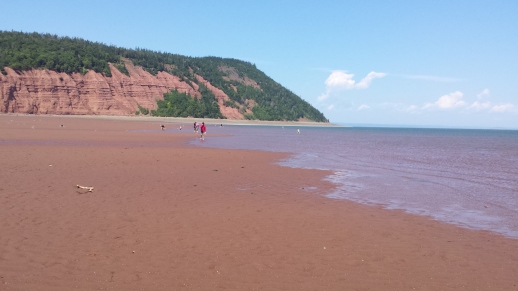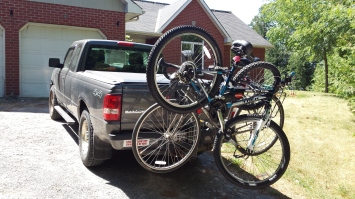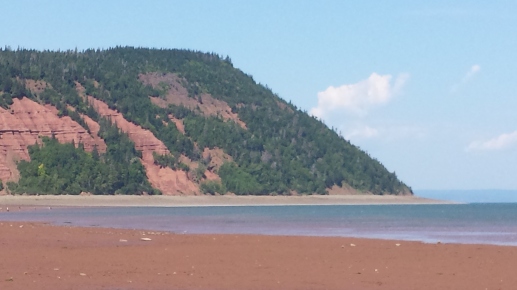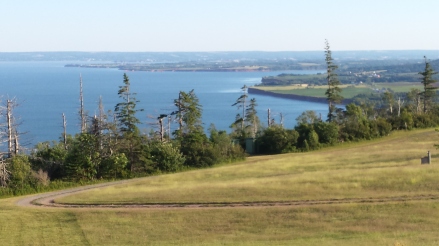
At Risk of Over Planning.
Not having been on a holiday since my ABI a year and a half ago prompted some questions.
Do I want to take a holiday? I kind of think so.
Should I take a holiday? Possibly.
Where to go? Find a place that’s worth the effort and not make me regret the likely side effects of my brain injury.
The common sense choice
What kind of holiday should it be? Bus excursion? Yes, that looks like it will fit the bill. Choose a destination and it’s all planned out. The details are all laid out, a predictable schedule. Minimal work in getting ready. Just need to decide what to put in my travel bag. Accommodations arranged with room service and restaurants booked ahead. A professional driver, just sit back and relax.
Oh wait. Taking a bus excursion means there will be many other people in close quarters. That means dealing with conversations all day, reading social cues, dealing with sensory loading of all sorts. Since there’s a daily schedule I can’t ask the bus to pull over just because I’m experiencing sensory overload from the constant movement. The schedule means I need to be up each morning by a certain time. If I couldn’t get to sleep or my sleep was disrupted I would not be able to sleep late. Starting the day after a short night means I

haven’t cleared my sensory loading from the day before. I would most certainly start the day with a headache. In short it would be a tough day or worse. The restaurants often are environments for creating sensory overload. Being in a different place every day is cognitively demanding since familiarity and routines help to mitigate sensory overload.
The obvious and impressive first choice was on second thought guaranteed to be a catastrophic failure.
The intensive planning choice
I decided that yes, I very much want to take a holiday with the two of us. I never realized how much planning it would take to not have the holiday turn into a Punishing Experience. To prevent a repeat of a weekend away the holiday needed to be flexible, planned, slow, deliberate, low demands, options for quiet time, and more.
The OT (occupational therapist) worked with me over a five week period. Between planning the obvious and obediently carrying out the seemingly absurd requests, the plans gradually took shape. The preparation involved sleeping in the tent in the front yard for a couple nights. This would determine whether tenting was still a viable option with ABI. The first attempt to sleep in the tent was aborted. This would have meant disaster if we were already on the road. After making several adjustments I successfully managed two good nights in the tent.
We always thought we had camping well planned. The conversation fragment below had me wondering.
The OT asked, “Do you have a camping list of supplies, equipment etc?”
“Yes we have one,” I proudly told her, “We have a list that’s been fine tuned over the years.”
“Show me the list.”
“Okay,” I said pleased to show her the print out.
“Which things are you taking care of?”
“These,” I said, pointing to some of the items.
“I don’t see your name by those items.” “Do you need to buy anything on that list?”
“Yes.”
“Did you make a list?”
“Oh yes.”
“When do you plan buy the items?”
What I realized is that planning had to be much more detailed than pre-ABI. Not just a general plan that served as a general guide to doing things on the fly. Rather it had to be a plan with details like, who is going to do it, how is it going to be done and when is it going to be done. What the OT wanted to avoid was the last minute packing panic. That could be a significant setback before even starting our holiday.
The OT asked about many aspects of the planning. What day were we leaving? What time were we planning to pull out? How were we organizing the packing of food, cooking utensils, tent gear, cycling equipment, etc. When would all the camping gear and food be loaded? How many nights were we staying at the bed and breakfast place? Was a bed and breakfast better than a motel. How far did we plan to drive in one day? Were the bed and breakfast reservations flexible? Did we have the campground information written down – address, phone number, and directions? Did we have the route mapped out? What was our

goal for the holiday? Did we have a backup plan if we were delayed due to not being able to drive four hours? Did I have my medication sorted for the trip? Was I planning to go to the Canada Day Parade the day before leaving? (Correctly implying that it would not be a good idea)
Needless to say, the questions felt like an interrogation. More to the point, I felt like it would be my fault if this trip did not go well if I couldn’t give a good answer for each of the questions posed.
The Trip
Being on the road was the hardest part of the trip, whether I drove or was the passenger. We limited the first day on the road to no more than three hours. After that we limited the drive to no more than four hours a day on the road. Some days four hours was too much. We found that a break every hour with a longer break at the two hour mark worked the best. The break served one main purpose. It was intended to minimize and hopefully shed some of the sensory loading. The break involved getting respite from the constant movement, walking around, and eating a snack or meal. Signals such as fatigue (even as a passenger), headache, nausea or double vision were indictors that we were on the road too long.
Highlight of the trip
Camping for four days at Blomidon Provincial Park in Nova Scotia was the most successful part of our holiday. Maybe it was the campsites at the top of the spectacular 600 ft cliffs, or maybe the fresh air off the Bay of Fundy. During our stay at the park I could do a full day of

activities without experiencing any ABI symptoms. Our stay there involved hiking about 8 km a day, cycling, reading and rock hounding. I was very reluctant to leave the park. It was the first time in a year and a half that I felt ‘normal’. I went through four days in a row without experiencing reminders of my ABI. The only subtle reminder was the ten hours I slept each night to balance out the day time activities.
The day following our stay at Blomidon Provincial Park stands in sharp contrast to the previous four days. We drove to PEI, a trip of about 4 hours. It took me two and a half days to recover from the drive. In PEI we were in a house with four people who I should mention were very pleasant company. However, being around three other people and the more complex social dynamics that come with larger groups likely slowed down my recovery. Four of us living in a house was a major change from two of us camping.

It was worth it
Five weeks of planning for a three week trip made for a successful holiday. We met our goals of relaxing, biking and visiting specific historic sites. This three week trip has increased my understanding of living with ABI.

Interesting as always. I’m glad you had those three excellent days
LikeLiked by 1 person
The holiday went better than I expected, not that I’m a pessimist. Being in a different place for awhile has given me new insights into living with ABI. Thanks.
LikeLike
Interesting to read about your experiences since we have to take a lot of this into account with our son Logan as well.
LikeLike
Didn’t mean to post anonymously!
LikeLiked by 1 person
The one advice I was given that made a lot of sense was to make all plans a flexible as possible. That meant moving campsites twice because we kept extending our time camping at one park. Each time I went to renew, the campsite we were on was booked by a new camper.
LikeLike
This was a wonderful and insightful story. The way you related the hidden suffering of living with ABI was excellent. The telling sentence for me was, “It was the first time in a year and a half that I felt ‘normal’. I went through four days in a row without experiencing reminders of my ABI.” Wow!
LikeLiked by 1 person
It’s surprising what new insights I discovered about living with ABI by being in a very different environment for 3 weeks. Very helpful and encouraging.
LikeLike